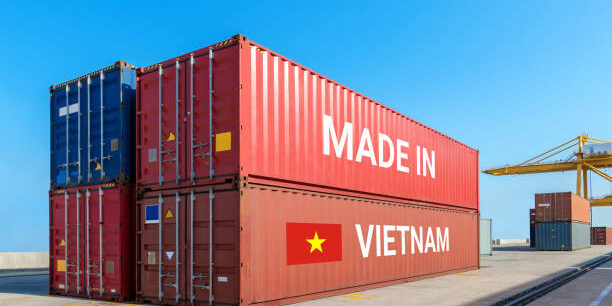Vietnam is embracing the opportunities presented by the diversification of global supply chains, positioning itself as a key player in international production networks. This shift is not only enhancing the country’s market potential but also fostering resilience in the face of evolving global trade dynamics. Experts emphasize that diversifying supply chains is crucial for improving business resilience, enabling companies to swiftly adapt to external challenges. With robust trade relationships with both the US and China, Vietnam is uniquely positioned to capitalize on this moment, leveraging its strategic location and manufacturing capabilities.
The ongoing realignment of global trade offers Vietnam a fantastic opportunity to expand its role in various value chains. The recent relocation of certain value chains to Vietnam has resulted in a notable increase in exports, particularly in sectors such as electronics and machinery. This trend showcases Vietnam’s ability to attract global investment and enhance its market share, setting the stage for sustainable economic growth. Although there are challenges, including trade tensions between the US and China, the overall impact on Vietnam’s trade landscape remains positive.
To further seize the momentum, experts advocate for Vietnam to transition from low-value assembly activities to producing higher-value, more sustainable products. By enhancing its participation in global value chains, Vietnam can ensure long-term competitiveness and resilience. Additionally, reducing non-tariff barriers, such as streamlining customs procedures and easing foreign equity restrictions, will facilitate trade and investment flows, opening up new avenues for growth. Strengthening trade integration, especially within the Asian region, will allow Vietnam to diversify its import and export base, further bolstering its economic position.
Upskilling the workforce is also essential for Vietnam’s success in the evolving supply chain landscape. By investing in education and training, Vietnam can enhance the competencies of its labor force, enabling quicker technology adoption and greater adaptability to market changes. Moreover, strengthening infrastructure and ensuring a stable energy supply will support Vietnam’s ambitions to become a manufacturing hub while reducing the carbon intensity of its products.
As Vietnam continues to diversify its supply chains, enhancing resilience to natural disasters remains a priority. The country is taking proactive measures to build supply chains that are not only sustainable but also equipped to recover swiftly from unexpected challenges. By prioritizing disaster preparedness and developing standards for resilience, Vietnam is setting a strong foundation for long-term sustainability.
In summary, Vietnam’s strategic focus on supply chain diversification offers immense potential for sustainable growth. By leveraging its strengths, enhancing workforce capabilities, and investing in resilience, Vietnam is well on its way to solidifying its position as a vital player in the global supply chain ecosystem.
#ICTTMNews #BreakingNews #NewsUpdate #SupplyChainNews #GlobalTradeNews







